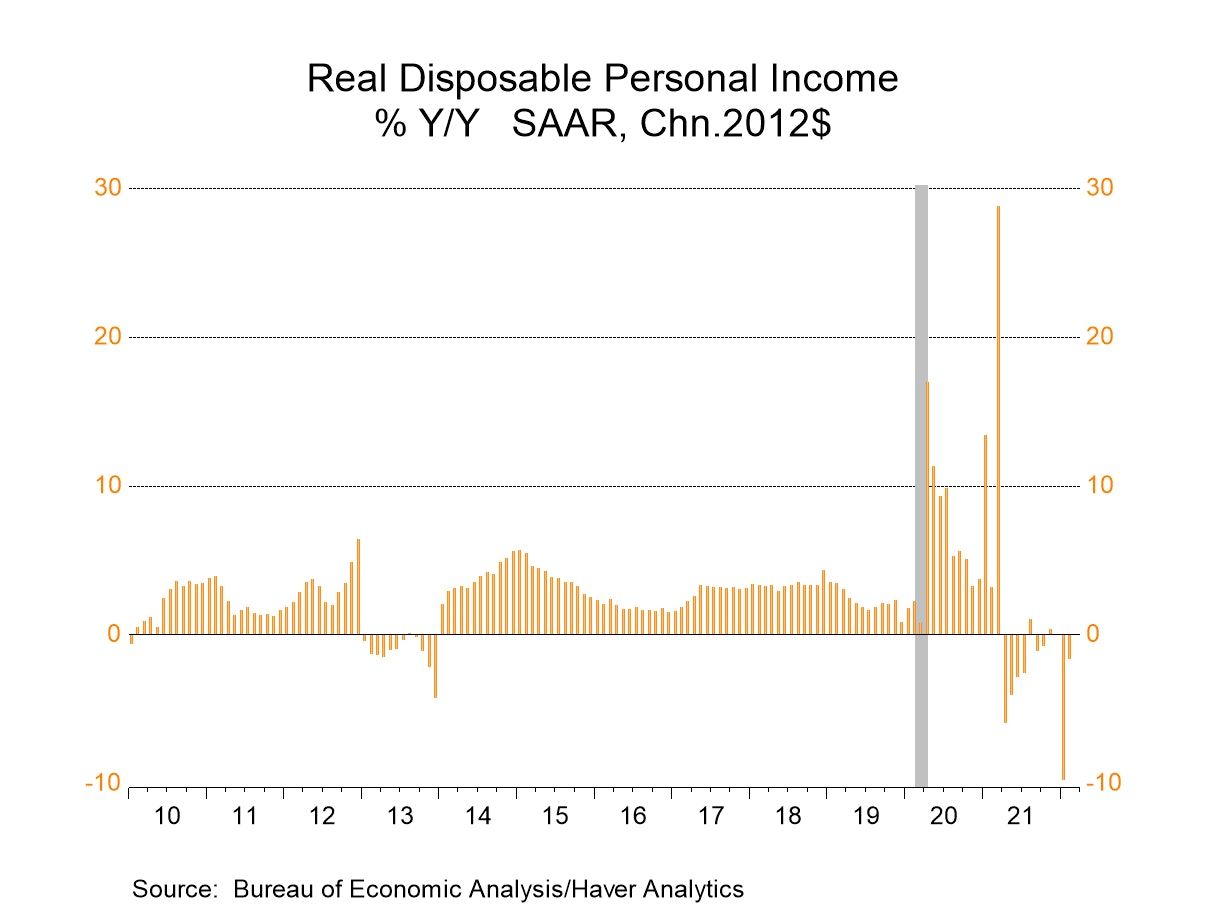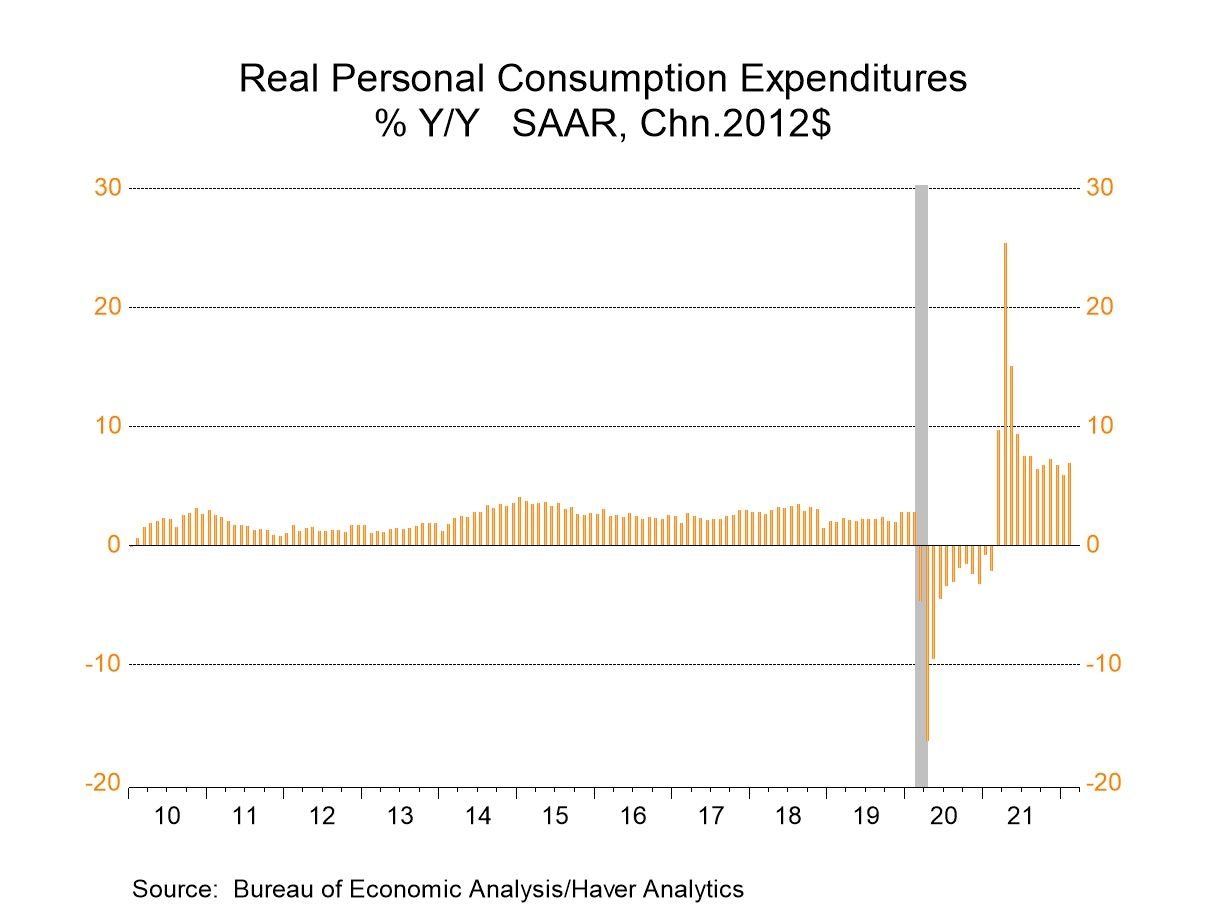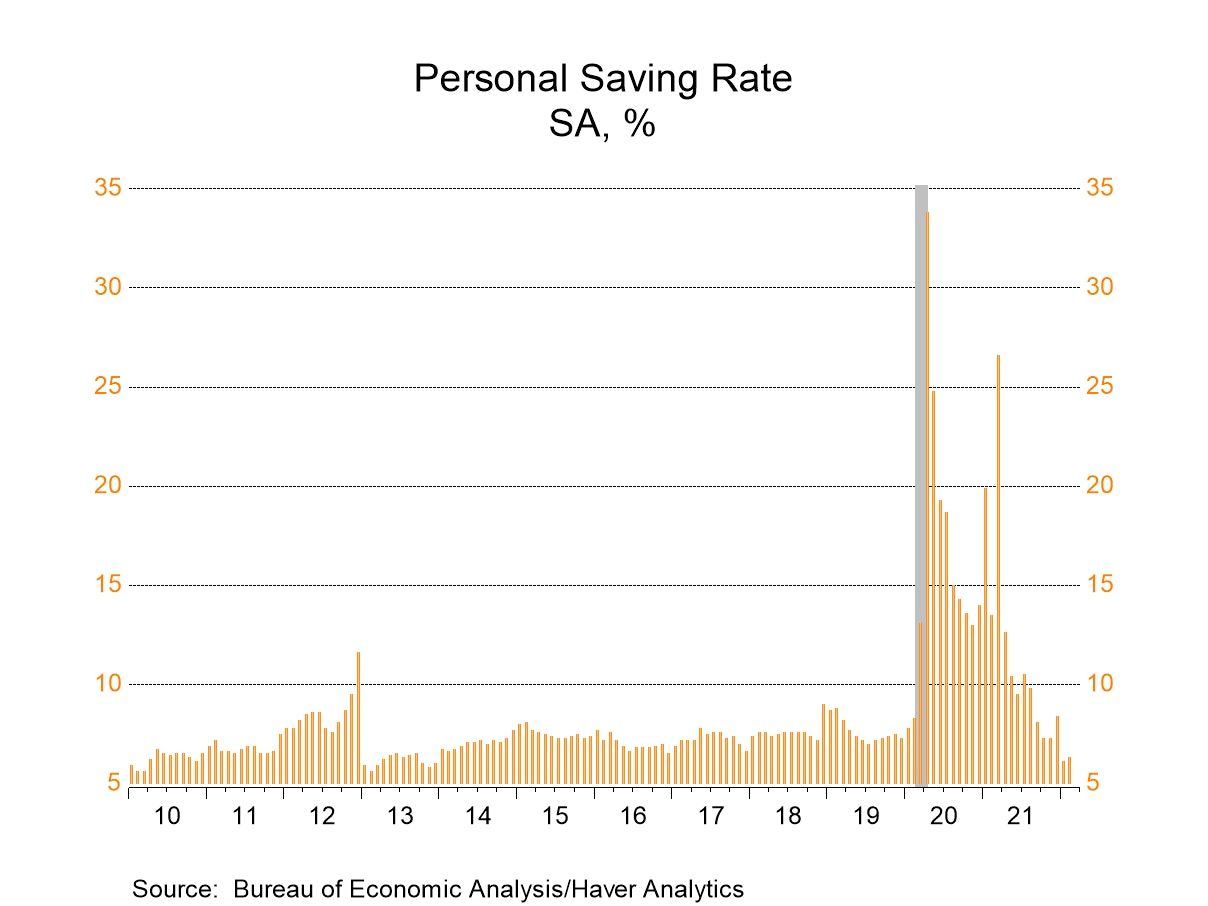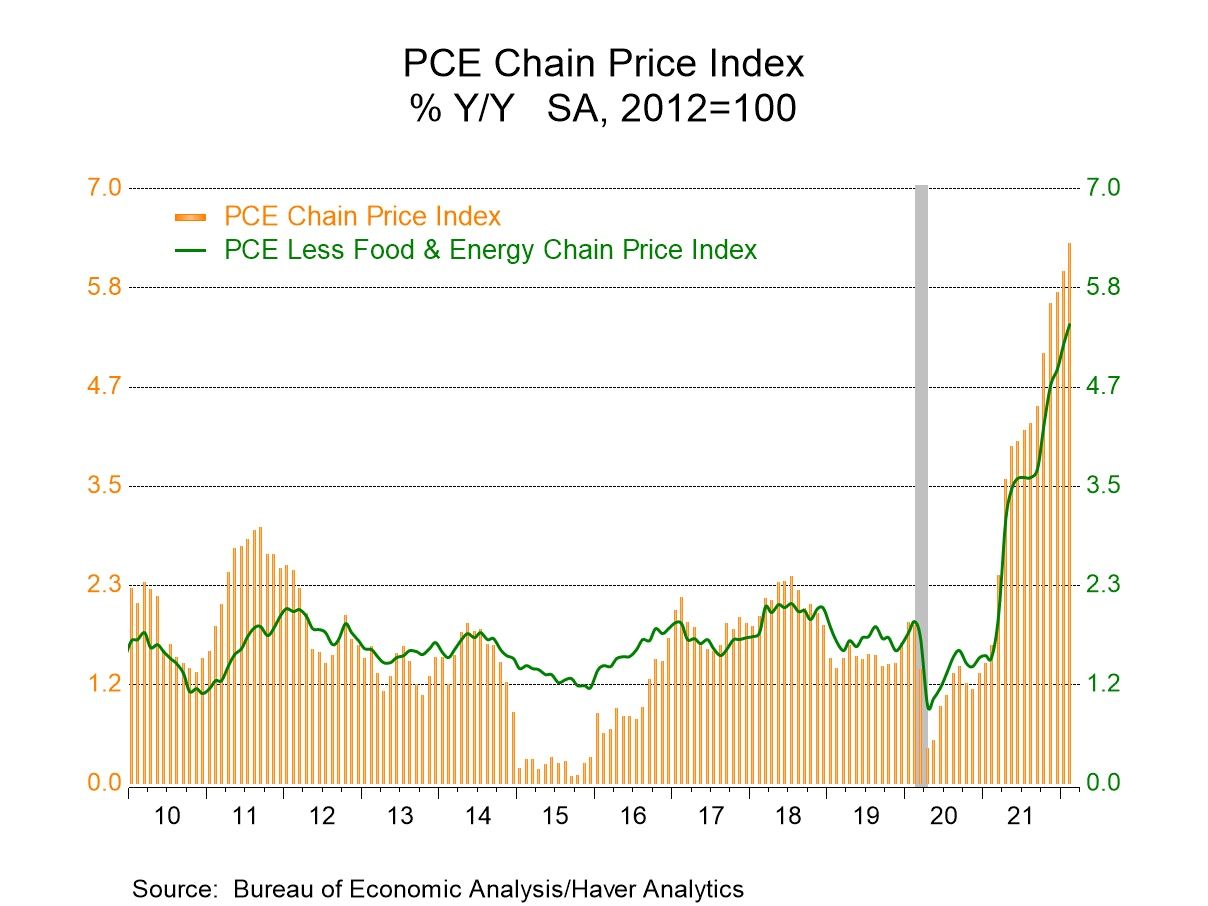U.S. Personal Spending Slows as Income Picks Up in February
by:Tom Moeller
Summary
- Goods spending declines but services improves.
- Core price inflation eases m/m.
- Wage & salary growth strengthens.


Personal consumption expenditures rose 0.2% (13.7% y/y) during February after strengthening 2.7% in January, revised from 2.1%. A 0.6% rise had been expected in the Action Economics Forecast Survey. Adjusted for price inflation, spending declined 0.4% last month (+6.9% y/y) after increasing 2.1% in January.
Real spending on durable goods declined 2.5% in February (+5.2% y/y) after January's 10.1% surge. The decline reflected a 4.0% drop (-2.8% y/y) in real outlays on motor vehicles & parts after surging 11.8% in January. Real furniture & appliance outlays weakened 2.8% (+0.8% y/y) after an 8.4% January rise. Real outlays on recreational goods & vehicles declined 2.3% (+14.7% y/y) following an 11.6% surge. Real nondurable goods buying fell 1.9% in February (+6.4% y/y) after a 3.1% gain. Adjusted for inflation, clothing outlays declined 2.1% (+15.6% y/y) after a 7.1% January rise. Real food & beverage expenditures fell 2.3% in February (+0.9% y/y) after a 1.9% increase, and real spending on gasoline & other energy products eased 0.1% (+11.1% y/y). Real outlays on services improved 0.6% (7.4% y/y) in February after a 0.3% increase. Housing & utilities spending fell 0.5% (+0.6% y/y) as it followed a 1.0% rise. Real outlays on recreation services offset that decline and surged 1.9% (24.4% y/y) after weakening modestly in the prior two months. Real spending at hotels & restaurants jumped 2.4% last month (24.7% y/y) after falling 1.3% in January.
Prices marched higher last month. The PCE chain price index rose 0.6% in February (6.4% y/y) following two months of 0.5% increase. The price index excluding food and energy rose 0.4%. The 5.4% y/y increase was the largest since April 1983. Durable goods prices held steady (11.4% y/y). The nondurables goods price index strengthened 1.8% (8.6% y/y) after rising 0.7% in January as gasoline & oil costs surged 6.7% (36.4% y/y) after a 0.2% dip. The services price index rose 0.3% last month (4.6% y/y) after two months of 0.4% gain.
Personal income rose an expected 0.5% (6.0% y/y) during February following a 0.1% rise, revised from no change. Wages & salaries increased 0.8% last month (11.5% y/y) after rising 0.4% in January. Proprietors income rose 0.8% (10.0% y/y) after improving 0.2%. Rental income rose 0.7% (5.6% y/y) for the second straight month. Transfer receipts declined 0.3% (-5.4% y/y) after falling 1.0% in January. Disposable income increased 0.4% (4.6% y/y) in February, after rising 0.1% in January. Adjusted for price inflation, disposable income declined 0.2% (-1.6% y/y), off for the seventh straight month.
The personal savings rate rose to 6.3% in February from 6.1% in January. It remained down from a high of 33.8% in April of 2020. The level of personal savings rose 3.5% last month but has fallen by roughly one-half during the last twelve months.
The personal income and consumption figures are available in Haver's USECON database with detail in the USNA database. The Action Economics figures are in the AS1REPNA database.
Why Is U.S. Inflation Higher than in Other Countries? from the Federal Reserve Bank of San Francisco is available here.


Tom Moeller
AuthorMore in Author Profile »Prior to joining Haver Analytics in 2000, Mr. Moeller worked as the Economist at Chancellor Capital Management from 1985 to 1999. There, he developed comprehensive economic forecasts and interpreted economic data for equity and fixed income portfolio managers. Also at Chancellor, Mr. Moeller worked as an equity analyst and was responsible for researching and rating companies in the economically sensitive automobile and housing industries for investment in Chancellor’s equity portfolio. Prior to joining Chancellor, Mr. Moeller was an Economist at Citibank from 1979 to 1984. He also analyzed pricing behavior in the metals industry for the Council on Wage and Price Stability in Washington, D.C. In 1999, Mr. Moeller received the award for most accurate forecast from the Forecasters' Club of New York. From 1990 to 1992 he was President of the New York Association for Business Economists. Mr. Moeller earned an M.B.A. in Finance from Fordham University, where he graduated in 1987. He holds a Bachelor of Arts in Economics from George Washington University.


